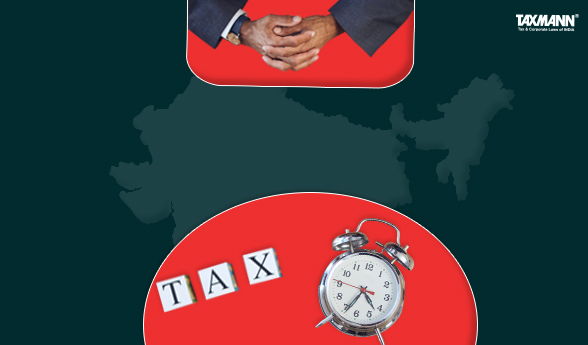[Opinion] Indian Tax Treaties and Most Favoured Nation Clause
- Blog|News|International Tax|
- 3 Min Read
- By Taxmann
- |
- Last Updated on 16 February, 2024

Prabhakar K S – [2024] 159 taxmann.com 274 (Article)
“Treaties are observed as long as they are in harmony with Interests…..”
– Napoleon Bonaparte
1. Introduction
The genesis of International (Tax) Law goes back to the 1920s or the days of the League of Nations. In 1927, the League of Nations prepared the first formal draft of a Treaty. In 1943, the Second Regional Tax Conference in Mexico and the Fiscal Committee in London proposed variations. Subsequently, this work was entrusted to its successor the Organisation for Economic Co-operation and Development (hereinafter ‘OECD’) and released its draft in 1963 – the Model Convention. Since then many countries have entered into Tax Treaties, also called Double Taxation Avoidance Agreements with other countries to avoid double tax. It is a bilateral agreement entered between two different tax jurisdictions to resolve issues involving double tax on income, capital gains, eliminate tax evasion, platform for conflict resolution and foster economic trade and cross-border investments.
In any country, the tax levied is based on ‘Source’ and ‘Residence’. Under the ‘Source’ rule, an income will be taxed in the country in which it originates whereas under the ‘Residence’ rule, the power of levying tax will rest with the country in which the taxpayer resides. Whenever the ‘Source’ rule overlaps simultaneously to a business entity or transaction, or when a person became a resident, for tax purposes, in two or more tax jurisdictions at a time or when the same transaction or income or capital is subject to tax in two or more countries, it is where the treaty comes into the picture and plays a key role and avoid the double tax. In other words, it aims to eliminate or reduce the tax burden of an entity or taxpayer.
2. India and Tax Treaties
India’s tax treaty regulatory framework is provided in the Income Tax Act, 1961 (the Act) and the Income Tax Rules, 1962. Its three Sections, Section 90 enables the Central Government to enter such agreements with other tax jurisdictions, Section 90A enables the adoption of an agreement between specified associations for double tax relief and Section 91 extends the double tax relief when there is no such arrangement with other contracting state exists. Similarly, Rule 21AB of the Income Tax Rules, 1962, seeks certain information from non-resident assessee, namely, its legal Status – individual, company, firm, etc., nationality (in case of an individual), country or territory of incorporation (in case of others), assessee’s tax identification number or unique identification number issued by his country (like our PAN), period of residence and address of the assessee outside India in Form 10F to availdouble tax relief. Resident assessee is required to make an application in Form 10FA to avail a tax residency certificate the case may be. Currently, India has entered such agreements with more than 140 countries, which include all varieties such as Comprehensive, Limited, Limited Multilateral, Tax Information Exchange, Specified Associations, and other agreements.
Tax Treaties and Tax Reliefs
As far as India is concerned, a taxpayer’s residential status plays a key role in determining his/her/its annual tax outgo. As per Section 6 of the Act, in the case of a resident, his/her/its global income (‘Residence Rule’) is taxable in India. In the case of a non-resident, only his/her/its Indian Income (‘Source Rule’) is taxable. The taxpayers’ residential status will be determined as per the aforesaid Section annually. Many times, a resident taxpayer pays income tax in other countries on his/her/its foreign income and their income may be subject to tax here in India. It is where a tax treaty provides tax relief from double tax.A taxpayer has an option either to be taxed as per the double tax avoidance agreement or as per the normal rates and provisions under the Act, whichever is more favourable to the taxpayer as held in Deputy Commissioner of Income Tax v. ITC Ltd.
Click Here To Read The Full Article
Disclaimer: The content/information published on the website is only for general information of the user and shall not be construed as legal advice. While the Taxmann has exercised reasonable efforts to ensure the veracity of information/content published, Taxmann shall be under no liability in any manner whatsoever for incorrect information, if any.

Taxmann Publications has a dedicated in-house Research & Editorial Team. This team consists of a team of Chartered Accountants, Company Secretaries, and Lawyers. This team works under the guidance and supervision of editor-in-chief Mr Rakesh Bhargava.
The Research and Editorial Team is responsible for developing reliable and accurate content for the readers. The team follows the six-sigma approach to achieve the benchmark of zero error in its publications and research platforms. The team ensures that the following publication guidelines are thoroughly followed while developing the content:
- The statutory material is obtained only from the authorized and reliable sources
- All the latest developments in the judicial and legislative fields are covered
- Prepare the analytical write-ups on current, controversial, and important issues to help the readers to understand the concept and its implications
- Every content published by Taxmann is complete, accurate and lucid
- All evidence-based statements are supported with proper reference to Section, Circular No., Notification No. or citations
- The golden rules of grammar, style and consistency are thoroughly followed
- Font and size that’s easy to read and remain consistent across all imprint and digital publications are applied



 CA | CS | CMA
CA | CS | CMA
